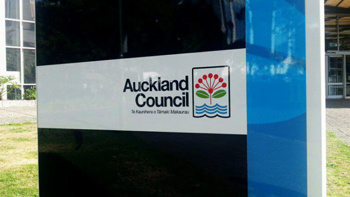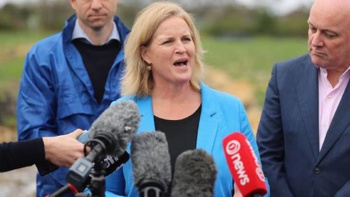Former Olympian Alison Shanks has hit back at Mike Hosking's criticism of a new quota for women on sporting boards.
Yesterday Mike Hosking expressed his disapproval of the decision, arguing that success of board candidates was much more important than their gender.
His comments came after Sport New Zealand and High Performance Sport New Zealand have told sports they fund that the sports need a quota of 40 per cent woman on boards by 2021.
"The role, I thought, of these two groups using our money is to promote sport, not political agendas. The role, I thought, using our money, was to reward success on the field or track, to promote excellence in sport, to promote and reward, success, victory and winning. And the more you win, the more support and funding you get," Hosking said.
"A sport's job in this arrangement is to succeed. Whether that success is driven by men, women, tall, short, fat, thin, young, old, gender fluid doesn't matter."
However, Shanks argued the case for gender equality on Newstalk ZB this morning, saying the notion of an old boy network within sport needed to be replaced by diverse thinking.
"Funding based on success, maybe that is an old notion. We need to understand all the drivers of performance - and whether that is just success.
"This is perhaps a shift into a holistic view at what performance is, and we ultimately know that diverse thinking around the leadership table will improve the performance of an organisation."
Shanks said the quota was about breaking down barriers.
/arc-anglerfish-syd-prod-nzme.s3.amazonaws.com/public/5BGTHYH2WJCMDHRTVS36666T3E.jpg)
Former Olympian and world champion cyclist Alison Shanks. Photo / File
"We are not seeing woman get through the process and then ultimately to the board table, so it's about insuring we have diverse board appointment panels and the actual process of how the job descriptions are written appeals to both men and women.
"We know that through the interview process there is an affinity bias, because naturally like is attracted to like.
"So when we have a notion of an old boys network within sport in some cases, you get that constant churn of male appointing male," she said.
"It's about breaking some of those barriers down to allow a woman through the process, and then to the table."
Shanks said she didn't think it was that women didn't want the jobs.
"We absolutely know there is women out there who want these roles and are highly capable of being appointed, but at the same time there are fundamental hurdles that are stopping them get through the process.
"In terms of Sport New Zealand's quota it's not saying 'slap-bang here is a quota' tomorrow, actually there is a number of steps boards can take to insure that pipeline is being opened up to a diverse number of candidates. That way we are going to get more women around the table."
Shanks said the notion of diversity is not new.
"The Hillary Commission back in 1994 had a target and highlighted the issue, and targets have been set as far back as 1990, but we still haven't seen the dial shift.
"Therefore, history shows us that when left to voluntary adoption, uptake is low and implementation just doesn't happen – so what the quota is doing is really allowing that next change to occur, and ultimately we will see diversity viewed as the norm around the board table."
Take your Radio, Podcasts and Music with you









